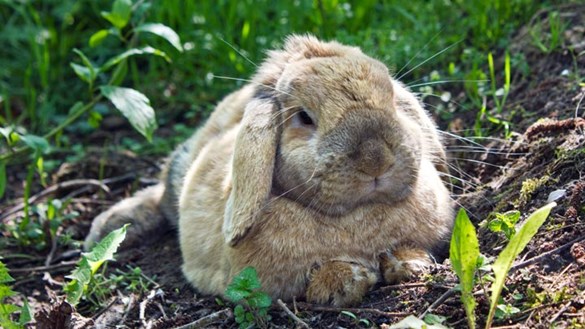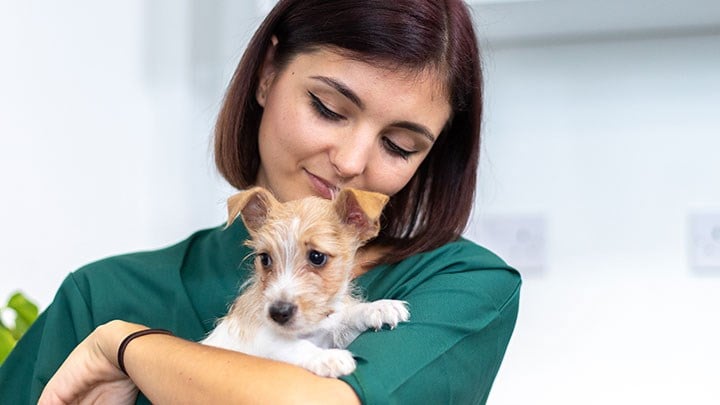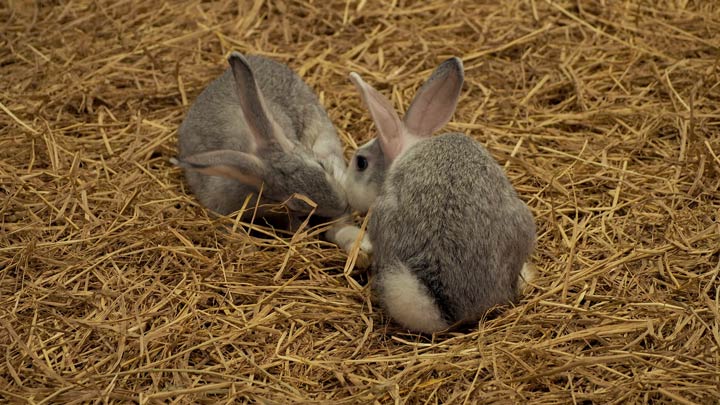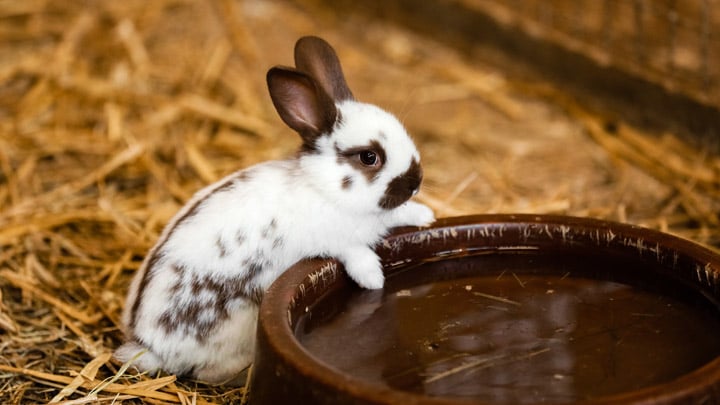Caring for your rabbit in the summer months
With the warmer weather, the longer evenings and winter a dim and distant memory, people are looking forward to a great British summer. Whether you’re planning barbecues with friends or relaxing days savouring the great outdoors, make sure your rabbit enjoys the summer months too.

As the temperature rises so does the risk of your bunny overheating, and they may need a helping hand to keep them cool. Follow our top tips to keep your rabbit safe this summer.
Keeping cool
Your pet rabbit can tolerate temperatures in their hutch of up to around 22C but over that and they risk getting heatstroke. Wild rabbits usually burrow underground to stay cool in the hotter months, but domestic bunnies don’t have that luxury, so it’s easy for them to overheat on a hot day, especially if they’re a breed with a particularly thick coat.
Fortunately, there’s plenty you can do to keep them cool:
- Give them lots of water – Make sure your rabbit has plenty of fresh water sources, both bottles and bowls. Pop some ice in their water to help them stay extra cool.
- Use ice – Ice isn’t just for their drinking water you can place an ice pack beneath their hutch to cool it from the bottom up. You can also wrap an ice pack in towels for them to sit on. Just remember to never let them sit directly on one – it could cool them down too quickly, causing shock and distress.
- Keep them clean – You should clean your rabbit’s enclosure daily, removing any soiled bedding. Give it a deep clean once a week. Flies are more prevalent in the summer months and are attracted by droppings. They will lay their eggs on your rabbits which hatch into maggots and can cause flystrike, a potentially fatal condition.
- Create plenty of shade – Make sure they are kept out of direct sunlight, so they have somewhere cool to sit and rest.
- Spritz water – Pop some cool but not icy water in a spray bottle and gently spray fleshy parts such as their ears on hot days.
Heatstroke
Heatstroke occurs when a rabbit gets too hot and can no longer regulate their body temperature. It’s a serious, and sometimes fatal, condition. While temperatures over 22C push up the risk of heatstroke there’s no hard and fast rule around the exact temperature it can occur, so it’s important to keep a close eye on your bunny during hot weather.
Check on your rabbit several times throughout the day – they tend not to display symptoms unless they’re already in serious trouble and the signs may be subtle to start with. Early signs may include:
- Panting or short, shallow breathing
- Drooling
- General weakness and lethargy
- Wetness around the nose
- Ears reddening or becoming warm
- Falling unconscious or fitting
If you spot any of these signs, contact your vet immediately.
Grooming
Brushing your rabbit’s fur regularly can help get rid of a build-up of extra, shedding hairs. Make sure to brush from head to bottom in the direction of the hair growth. Brush gently as rabbits’ skin is very delicate.
Never shave your rabbit and expose their skin as this can put them at risk of sunburn.
If in doubt speak to your vet about looking after their summer coat.
Flystrike
Flystrike is a painful and sometimes fatal condition where flies lay their eggs in your rabbit’s fur. They hatch into maggots which then feast on their host’s flesh. It can become fatal within a matter of hours, leading to toxic shock and death, and it is more common in rabbits who are older, less mobile or unable to clean themselves properly.
It’s also more prevalent in the summer months with the increased heat which is why it’s vital you check your rabbits bottom daily for any signs. Take an especially close look around the ears and bottom area. If their bottom looks excessively dirty, clean it thoroughly but gently with warm water and ensure it is dry.. It is normal for rabbits to produce sticky faeces (caecotrophs) which they will then eat, and they should be permitted to do this as it is important for their gut health. However, if a rabbit is overweight or arthritic then they can find this act challenging, and sticky faeces can build up around their bottom which can, in turn, attract maggots. If you are concerned
Good maintenance will help reduce the risk – change soiled bedding daily and deep clean regularly. But you can also insect-proof outdoor enclosures with insect nets. Your vet may also be able to support you with preventative treatment if your rabbit is arthritic, overweight or prone to getting a dirty bottom.
Garden watch outs
Beyond overheating and flystrike, make sure your garden is free from other hazards which could harm your pet.
- Poisonous plants - If you’re a keen gardener, think twice about what you grow or make sure your rabbit can’t get access as there are several plants and vegetables which can be dangerous for them.
Daffodils, rhubarb, potatoes, mushrooms, sweet peas, jasmine, iceberg lettuce, poppies, ragwort and foxgloves are all commonly grown in English gardens but can be toxic to your rabbit. Similarly, apple and pear seeds contain cyanide – not enough to do damage to humans but enough to be harmful to your bunny.
It can also be tempting to pop fresh grass cuttings in their enclosure, but too much of this can give them an upset tummy.
- Make your garden escape proof
This is as much about keeping predators out as it is keeping your rabbit in. Make sure there are no gaps in fences and that your rabbit has somewhere to run and hide if they need to or to take shelter from the sun. Consider using nets to stop birds of prey being able to reach them or create a fully fenced in enclosure in part of the garden if free roaming isn’t possible.
- Pay attention when using pesticides
Weeds and pests can be particularly problematic in a sunny garden but be careful what you use to get rid of them. Slug pellets and other chemicals can seriously harm your rabbit. Avoid using them, keep your rabbit away from any areas you have used them and if necessary, find a pet-friendly alternative.
- Cables and other objects
Make sure your garden is free from anything you don’t want your rabbit to chew! They can make quick work of plastic cables but if it’s connected to a hot tub, fan or lawn mower, for example, it’s not good for them or your equipment.
With a few simple steps, keeping your rabbit safe in summer should be easy. They can live comfortably and hazard-free while you can be sure their health and safety is protected when the sun is out.

Pet Symptom Checker
If you’re not sure whether your pet needs to see a vet, our quick and easy Symptom Checker can help.
View here


